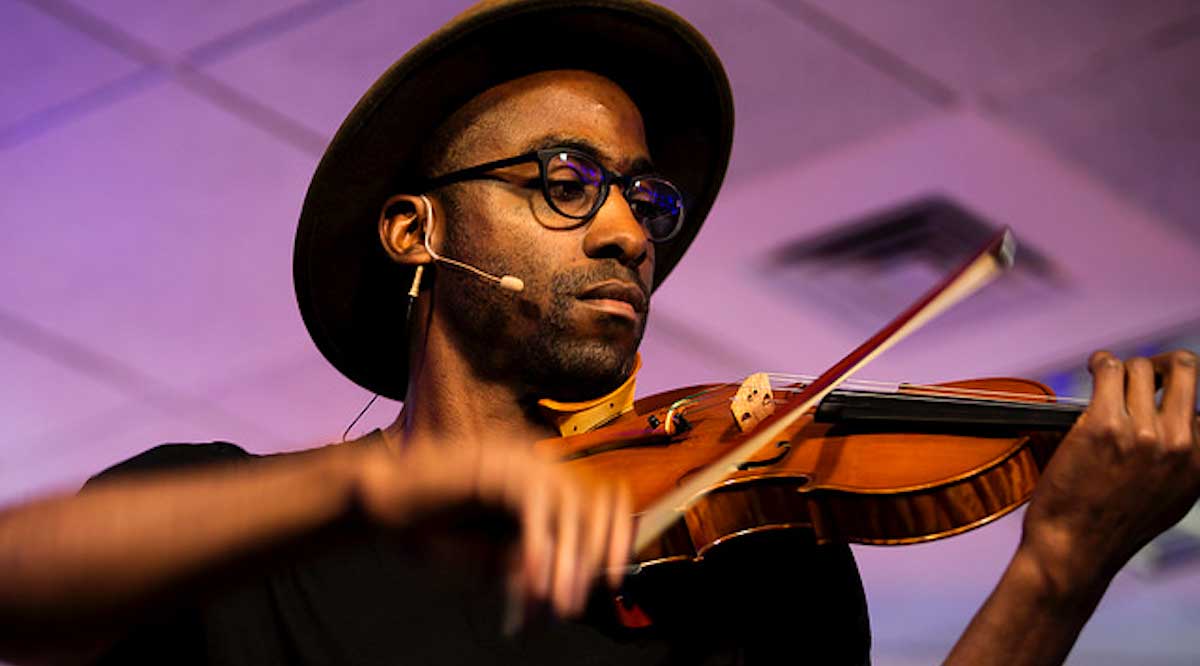Kai Kight wants to invite meeting and event professionals to rethink what it means to be an artist.
“We like to think of artistry as this unfiltered expression of the soul,” Kight says. “But the true work of the artist is the practice of technical discernment: the ability to decide precisely when and where a skill we’ve cultivated is useful.”
For an event, Kight says, this might be the practice of changing metrics.
“Instead of judging an idea on how impressive it is, what if we could judge simply by what effect it has?” he says.
Music as metaphor
Kight is a classical violinist and an innovative composer who uses music as a metaphor to help inspire people around the world to compose their own paths of fulfillment.
He attended Stanford University’s design and engineering program, the d.school and the Behavior Design Lab and has extensively studied how to help people build transformative habits in life.
“Instead of judging an idea on how impressive it is, what if we could judge simply by what effect it has?”
Kight’s keynote address at IMEX America, “Composing Change: Events that Move People,” aims to help attendees understand the tools they need to become artists themselves in the meeting and event industry.
Meeting and event professionals must fulfill a lot of needs during events and can sometimes lose sight of the bigger picture as they get more involved in the details of the work. Kight’s presentation will feature original violin compositions to help illustrate how to find that balance of detailed work and crafting an emotional response from an audience. In other words, how you can bring artistry to your own events.
Your sense of wonder
When it comes to addressing ways meeting and event professionals can inspire each other and the organizations they work for, Kight has a great suggestion.
“Assuming that the greater purpose is to make an impact on attendees, then I would say one path for inspiration is to remember to take moments away from being the performer in which you yourself can be the ‘observer,’” he says. “Stay attuned and in touch with what gives you a sense of wonder, enjoyment and captivation when you walk into a room.”
In music, for example, the artist’s job is to cultivate emotion in the listener’s body, Kight says. This is challenging for artists who aren’t attuned to the emotions within themselves.
It can be even harder if someone can’t admit failure, even though acknowledging it can lead to success.
IMEX America is back and better than ever. MPI is proud to kick-off the event with dynamic education on Oct. 10 with keynotes and sessions that will get you amped and ready to get moving and grooving!
“I can’t speak for everyone, but when I have a hard time admitting failure it’s generally because I’m scared this revelation of wrongdoing will take away from the credibility I might have in the future,” Kight says. “I’ll have a fear that acknowledging difficulty with something might inhibit my ability to lead.”
Kight says, though, that it’s kind of the opposite. For example, before a teacher critiques a student, it’s common for the teacher to learn and play the music first.
“Meaning, in order to guide, the teacher has to first have an experiential understanding of why the notes on the page might be difficult to play,” Kight says. “In life, when someone fails or struggles with something, an instinct might be to separate and distinguish ourselves from them. But really, it’s our ability to empathize and see the connection that gives us the necessary tools to lead.”
While admitting failure is important for personal success, it also helps with someone’s ability to guide and support others.
The power of restraint
Observing and admitting failure are just two tools meeting and event professionals can use to help themselves become valuable leaders. Restraint is another useful tool.
“Showcasing all of our skills in all moments is not a sign that we’ve mastered our craft,” Kight says. “It’s a sign that we don’t fully understand what we’re trying to accomplish on stage.”
For example, Kight says that sometimes a composition calls for an artist to showcase skills that are flashy, maybe requiring the performer to move their fingers as fast as possible. Then there are other moments when a composition might ask the artist to display a subtle skill like holding one slow, long note. This long note might be the most powerful moment in the piece.
“Stay attuned and in touch with what gives you a sense of wonder, enjoyment and captivation when you walk into a room.”
The artist, Kight explains, should have the capacity to play with the most advanced technique, but must be thoughtful in selecting the moments during which they choose to do so.
“I’ve been thinking about how, as people, we often praise the idea of having curiosity and open-mindedness,” he says. “But for a composer, misplaced open-mindedness can often destroy a composition. The composer will attempt to fit all the melodies in their mind into one piece of music.”
They’ll fail, Kight says, because they’re trying to say too much.
“In life, particularly in events, this ‘compositional overload’ happens when we ask the project in front of us to be everything to us and to represent all of our thoughts,” he says. “Our life, our creations, our careers, can have many different compositions. Not all insights and ideas are useful in every context. So, composing an event isn’t just understanding what we want our music to be, it’s also understanding what our music is not.”







